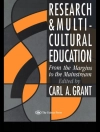Education systems worldwide will only successfully serve the needs of people with disability when we inclusively examine and address disabling issues that currently exist at school level education as well as further and higher education and beyond. The chapters contributing to this edited volume are presented to assist readers with a critical examination of contemporary practice and offer a concerted response to improving inclusive education. The chapters address a range of important topics related to the field of critical disability studies in education and include sections dedicated to Schools, Higher Education, Family and Community and Theorising. The contributors entered into discussions during the 2014 AERA Special Interest Group annual meeting hosted by Victoria University in Australia. The perspectives offered here include academic, practitioner, student and parent with contributions from Australia, New Zealand, Nigeria, the UK and the US, providing transnational interest. This book will appeal to readers who are interested in innovative theoretical approaches, practical applications and personal narratives. The book is accessible for scholars and students in disciplines including education, sociology, psychology, social work, youth studies, as well as public and allied health. The Introduction by Professor Roger Slee (The Victoria Institute, Victoria University, Australia) and Afterword by Professor David Connor (City University of New York) provide insightful and important commentary. Cover photograph by Paul Dunn and design by Hendrik Jacobs.
İçerik tablosu
Introduction: Disability Studies in Education as an Applied Project; Education – Schools; Not Just for the Fun of It: Children’s Constructions of Disability and Inclusive Play through Spatiality in a Playspace; Teachers’ Aides’ Perceptions of Their Training Needs in Relation to Their Roles in State Secondary Schools in Victoria; Celebrating the Voices of Students with Hearing Impairments in New Zealand Secondary Schools; Inclusive Education in Bangladesh: Stumbling Blocks on the Path from Policy to Practice; The Privileging of ‘Place’ within South Australia’s Education Works: A Spatial Study; Choosing Time: Supporting the Play of Students with a Dis/ability; Education – Higher Education; Inclusive Education for the Disabled: A Study of Blind Students in Nnami Azikiwe University, Awka, Nigeria; Managing the Barriers in Diversity Education that We Create: An Examination of the Production of University Courses about Diversity; ‘We Put in a Few Ramps in Here and There, That’s about It’: The Need to Ramp Our Minds in Academia; Family & Community; A Mother Caught in Two Worlds: An Autoethnographic Account of a Mother’s Mindset and Perception When Teaching Her Son with Asperger’s Syndrome to Drive; Technology Use and Teenagers Diagnosed with High-Functioning Autism: In and across Differentiated Spaces; Signifying Disability and Exclusion: Tales from an ‘Accidental Activist’; Theorising; A Troubled Identity: Putting Butler to Work on the Comings and Goings of Asperger’s Syndrome; Attending to the Potholes of Disability Scholarship; A Hidden Narrative: Reflections on a Poster about Young People with Health Conditions and Their Education; Thinking about Schooling through Dis/ability: A Dis Human Approach; Afterword: Cultivating a Global Disabilities Studies in Education; Contributors; Index.












